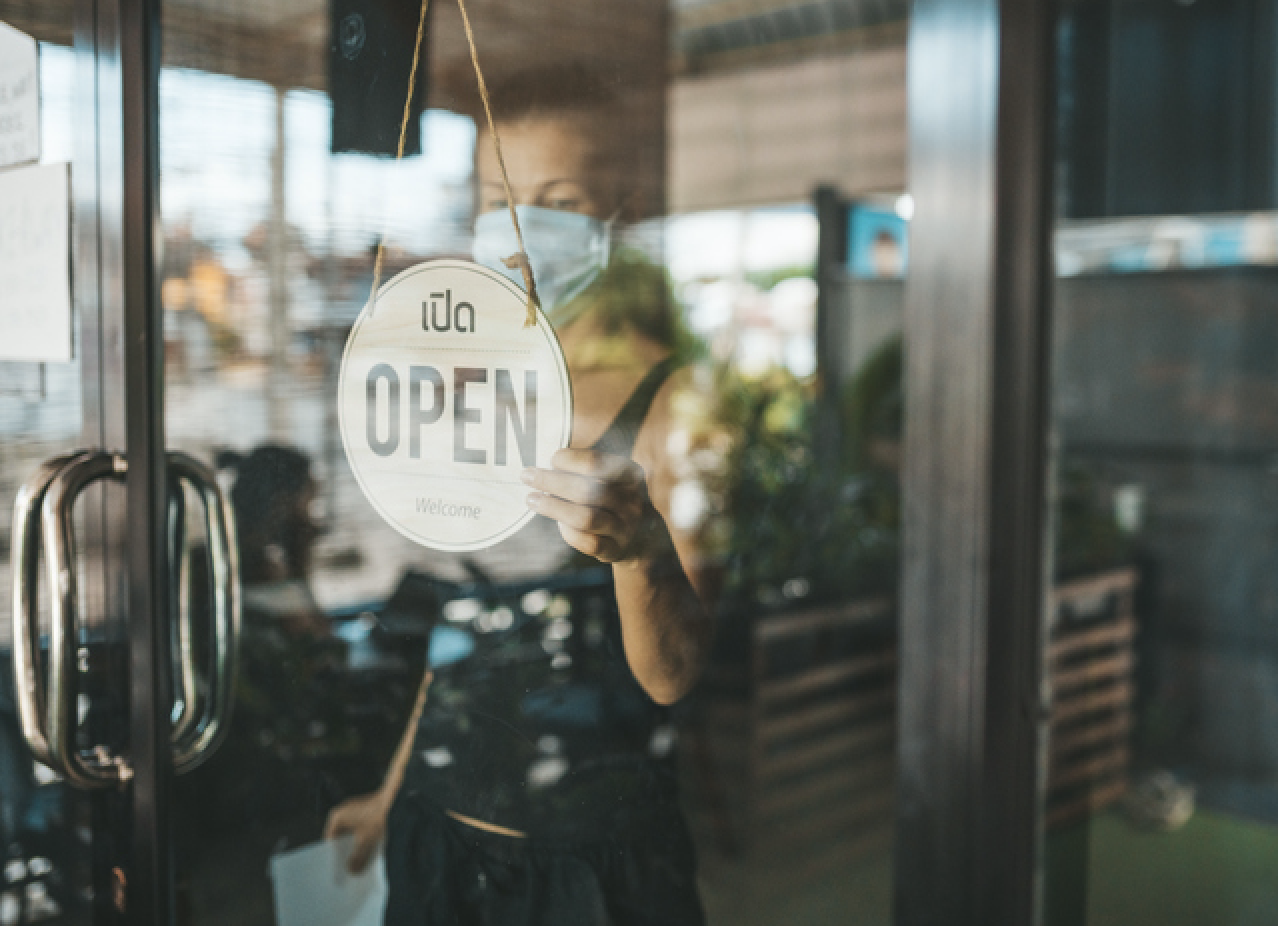How To Support People with Diabetes as COVID-19 Restrictions Change
 By Renza Scibilia
By Renza Scibilia
Diabetes advocate Renza Scibilia shares her feelings about COVID re-openings, thoughts on staying healthy with diabetes as restrictions change, and tips for supporting loved ones with diabetes during this challenging time
Before COVID-19 lockdowns were introduced in Australia I made the decision to limit how often I left the house. Everything I read suggested that even though having diabetes didn’t put me at greater risk of catching the coronavirus, health complications could be more severe if I did catch it, and diabetes could make recovery more difficult.
So, I stopped all domestic and international travel before government bans were announced and I started to work mostly from home. I had no idea what lay ahead, but for me, it seemed like a good idea to limit exposure anywhere this virus might linger.
While not everyone was on the same page as me, I held strong. My family and I stopped eating in restaurants, cancelled nights at the theatre, and started avoiding places where there might be crowds. For the last couple of months, we’ve been working and going to school from home; our only outings have been the occasional trip to the supermarket and daily walks with our dogs, stopping by a local café with a service window to order. We got flu shots at the drive-thru offered by our primary care physician – we didn’t even need to get out of the car!
Once restrictions were enforced in Australia, I didn’t need to explain why we wouldn’t be joining friends or family for get-togethers or turning down invitations to catch up. No one could do that anymore. But now, with restrictions starting to ease, I'm noticing people with diabetes are feeling anxious and nervous about what that might mean, and how we manage 're-entry' to being at work and school, enjoying social activities, and simply being out and about in public.
I‘m definitely feeling that way! I am not ready for catching up with friends and family and making up for lost time – even with physical distancing! I won’t go back to having Sunday brunch in restaurants, or inviting people over for dinner. In the last week I’ve felt really concerned and worried about what it will mean for me now that we’re starting to plan for returning to the office. Schools return in stages, starting next week, so my husband (who is a teacher) will be back at work on Monday, and my kid will return to school two weeks later. Their exposure is my exposure and that terrifies me.
Trying to explain my concerns – and my plans to keep isolating as much as possible – to people not affected diabetes is a little tricky. I feel that they think I’m being over-cautious and worrying needlessly. “But numbers are really down in Australia; we’ve got this beat!” they say. Or, “The government wouldn’t be easing restrictions if it wasn’t safe.” When I explain that the easing of restrictions is, in part, due to the fact that our hospitals can cope with an upswing in COVID-19 cases, they look at me in a way that makes me feel that my reaction is not normal.
How can I help feeling this way? Since the very start of the pandemic, we have been told that those with pre-existing chronic health conditions, such as diabetes, could experience poorer outcomes if we catch the virus. These constant warnings have shaped my response, and my concerns about being around others or in situations that I see as potentially dangerous. I’m always clear with what I need and want from those around me, I’ve been making suggestions to loved ones to explain how I am feeling, and how others can support me as the next phase of COVID-19 unwinds.
Here are my tips for supporting people with diabetes as COVID-19 restrictions are eased. Feel free to share this with your support network, so that they can help people with diabetes feel more comfortable during this challenging time.
-
Ask your friends and family with diabetes how they feel about restrictions being eased. I am sure that they will be grateful that you have simply acknowledged that they may be feeling a little apprehensive and concerned.
-
Listen to those concerns and try to understand where they are coming from.
-
Respect their decision if they choose to limit interactions and stay close to home, and isolated. Don’t tell them they are overreacting or being unnecessarily cautious – they may feel like that anyway.
-
Don’t pressure them into doing anything that makes them uncomfortable, such as outings with family, or catch ups with friends.
-
Ask them if there are ways they would like to start to get out more. For example, they may not be comfortable coming over to your house for coffee, but are okay with going for a walk to a local café for a to-go coffee. Or perhaps they will be okay chatting outside in the garden rather than indoors.
-
If you live in the same house as someone with diabetes and they are nervous about you going out more or returning to work, discuss what you can do to make them feel safer. It may be changing out of, and washing, anything you wear outside or to work as soon as you get home, leaving shoes outside and having a shower before sitting down together.
-
Share with them how you are doing all you can to stay safe, such as careful hand washing and maintaining physical distance, but understand if they don’t feel that is enough for them to be comfortable around you just yet.
Don’t be afraid to be honest with the people in your life – remember, your health is important and your feelings are valid.







